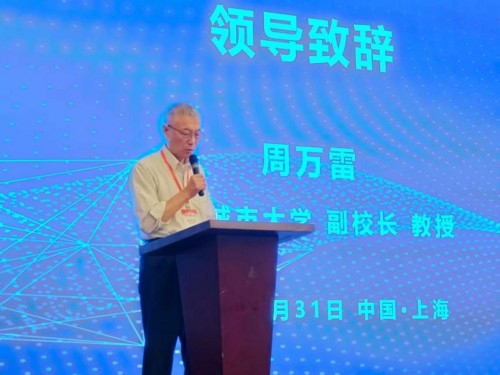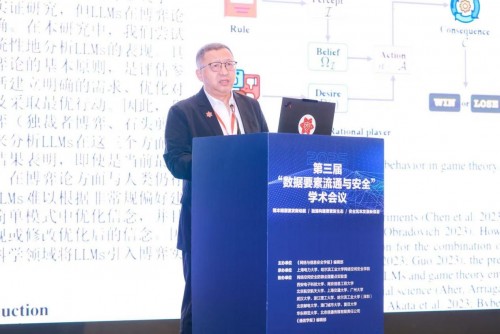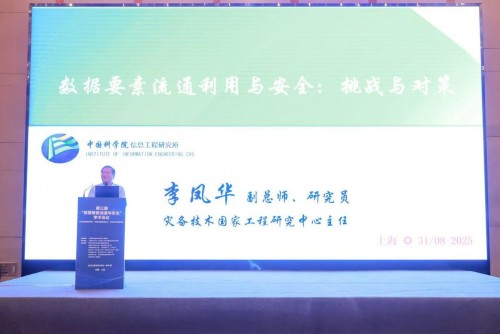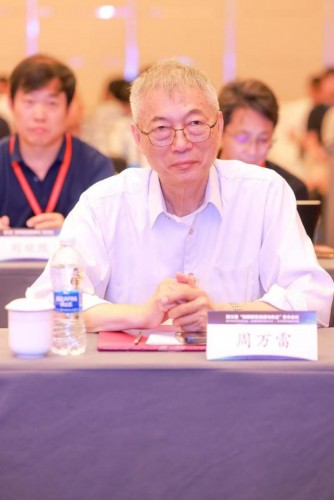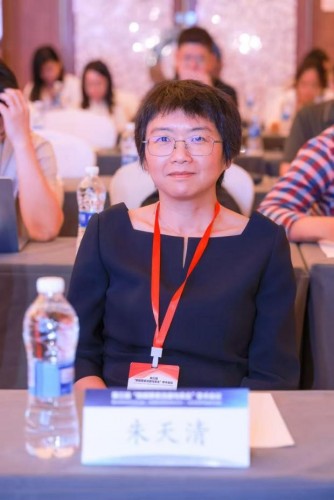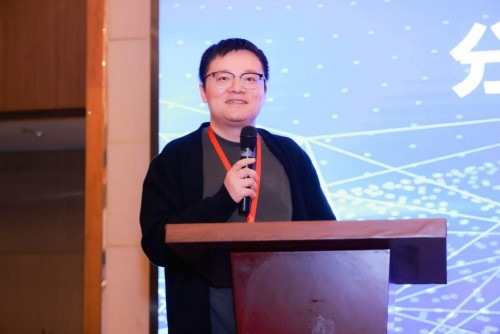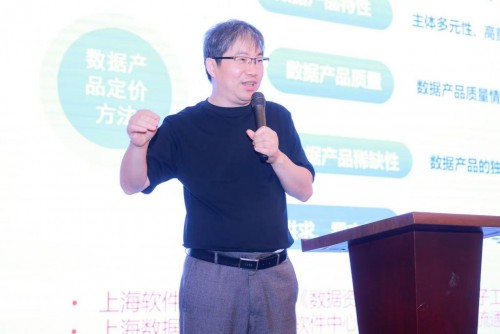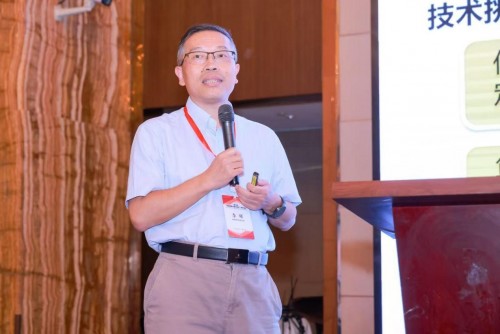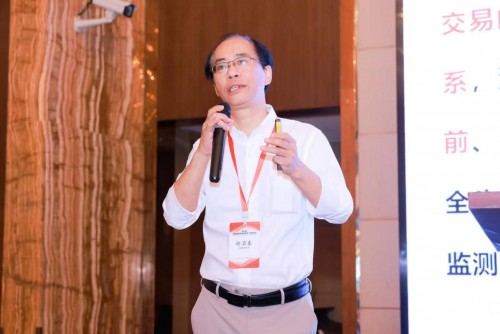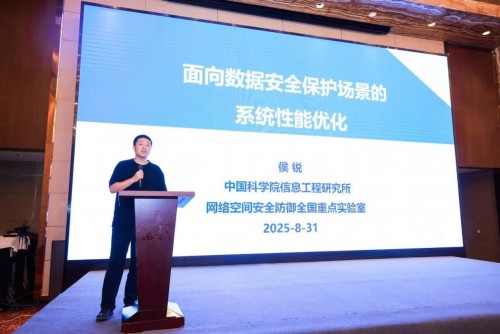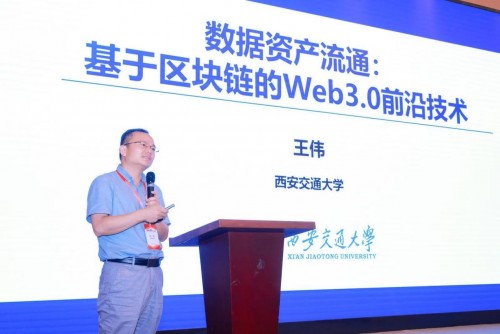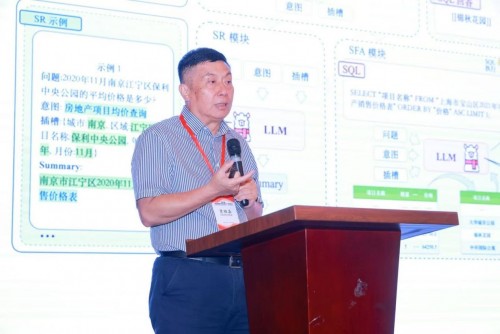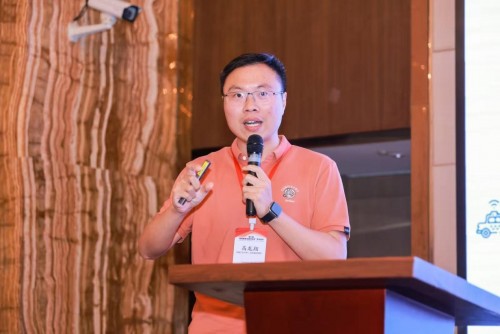From August 30 to September 1, 2025, the Third Academic Conference on Data Element Circulation and Security was successfully held in Shanghai. Under the theme "Clarifying Origins to Stimulate New Momentum, Integration to Build a New Element Ecosystem, and Security to Establish a New Foundation for Development," the conference was hosted by the Editorial Department of the Journal of Cyber Security and Information Protection and organized by Shanghai University of Electric Power. City University of Macau (CityU Macau), as one of the co-organizers, provided support alongside institutions such as the Institute of Information Engineering of the Chinese Academy of Sciences (IIE, CAS), Xidian University, the National Information Center, and other universities and organizations. The conference attracted numerous experts and scholars from top universities, research institutions, and industries across the country, engaging in in-depth dialogues and exchanges on data element circulation and security governance.
As one of the co-organizers, City University of Macau played a significant role in the conference's organization and academic leadership. Professor Zhou Wanlei, Vice Rector of CityU Macau, served as the conference vice chair, deeply involved in its organization and planning. Professor Zhu Tianqing, Associate Dean of the Faculty of Data Science, chaired the sub-forum on "Data Circulation Security and Transactions," responsible for its academic organization and agenda design.
The main forum featured distinguished guests and high-impact content. Academician Fang Binxing of the Chinese Academy of Engineering (CAE) and Honorary Dean of the School of Cyberspace Security at Guangzhou University delivered a keynote report titled "Artificial Intelligence Actor Security and Its Safeguards," providing a profound analysis of the security risks and prevention and control mechanisms of AI actors. Researcher Li Fenghua, Deputy Chief Engineer of the Institute of Information Engineering of the Chinese Academy of Sciences (IIE, CAS), presented "Data Element Circulation, Utilization, and Security: Challenges and Countermeasures," systematically elaborating on the core challenges and systemic solutions in the process of data element circulation, which served as a significant academic guide for the conference. In the sub-forum on "Data Circulation Security and Transactions," Professor Zhou Wanlei, Vice Rector of CityU Macau, delivered an opening speech titled "Data Circulation Security and Transactions," setting a high academic tone from an international perspective on cross-border data circulation and trust building.
The sub-forum brought together several domestic authoritative experts to focus on core issues such as privacy protection, compliance governance, dynamic pricing, and blockchain applications in data circulation. The first half of the session was chaired by Professor Xu Peng, Deputy Party Secretary of the School of Cyberspace Security at Huazhong University of Science and Technology. Professor Li Pan, Vice President of Hangzhou Dianzi University, initiated the discussions with a report on "Privacy and Liability Tracing in Data Transactions," exploring the balance between privacy and liability in data circulation. Researcher Cai Lizhi, Director of the Shanghai Computer Software Technology Development Center, followed with a presentation titled "A Balanced Path for Security Compliance and Value Release in Data Element Circulation," proposing a framework that balances compliance and innovation from policy and engineering practice perspectives. Professor Li Hui, Executive Dean of the School of Cyber Engineering at Xidian University, presented "Data Dynamic Pricing and Privacy Computing," systematically elaborating on the integration of data value assessment and privacy computing. Researcher Hou Rui, Director of the National Key Laboratory of Cyberspace Security Defense at the Institute of Information Engineering of the Chinese Academy of Sciences (IIE, CAS), shared "System Performance Optimization for Data Security Protection Scenarios," proposing synergistic paths to enhance data circulation efficiency and security from a system architecture perspective.
The second half of the forum was chaired by Professor Ning Jianting from the National School of Cybersecurity at Wuhan University. Professor Qiu Weidong, Deputy Director of the Institute of Cyberspace Security at the School of Computer Science, Shanghai Jiao Tong University, discussed "Arbitrable Authorization and Secure Transaction Technologies for Data Element Circulation," proposing a series of technical solutions and practical ideas. Professor Wang Wei, Dean of the School of Software at Xi'an Jiaotong University, presented "Data Asset Circulation: Blockchain-Based Web3.0 Cutting-Edge Technologies," exploring how blockchain technology can enable data assetization and trusted transactions. Professor Jia Weijia, Dean of the Institute of Artificial Intelligence and Future Networks at Beijing Normal University (Zhuhai), introduced innovative applications of edge intelligence in real-time data processing and circulation in his presentation titled "Edge Intelligent Data Processing and Applications." Professor Gao Longxiang from Qilu University of Technology (Shandong Academy of Sciences) delivered a speech on "Data Integrity Verification in Edge Computing: Building a Secure Foundation for Data Transactions," proposing technical methods to ensure end-to-end data trustworthiness and integrity.
Through in-depth exchanges in the main forum and five sub-forums, this conference established a high-level dialogue platform for academia, industry, and government agencies, effectively promoting the integration of industry, academia, and research, as well as innovative exploration in the field of data element circulation and security. By actively participating and hosting important sub-forums, with eight faculty representatives from the School of Data Science attending the entire conference and deeply engaging in various academic exchange activities, City University of Macau further demonstrated its research strength in data science and cybersecurity, expanded its collaboration network with top mainland universities and research institutions, and laid a solid foundation for continuously promoting high-quality development in the Guangdong-Hong Kong-Macao Greater Bay Area in the fields of data element circulation and security governance.


